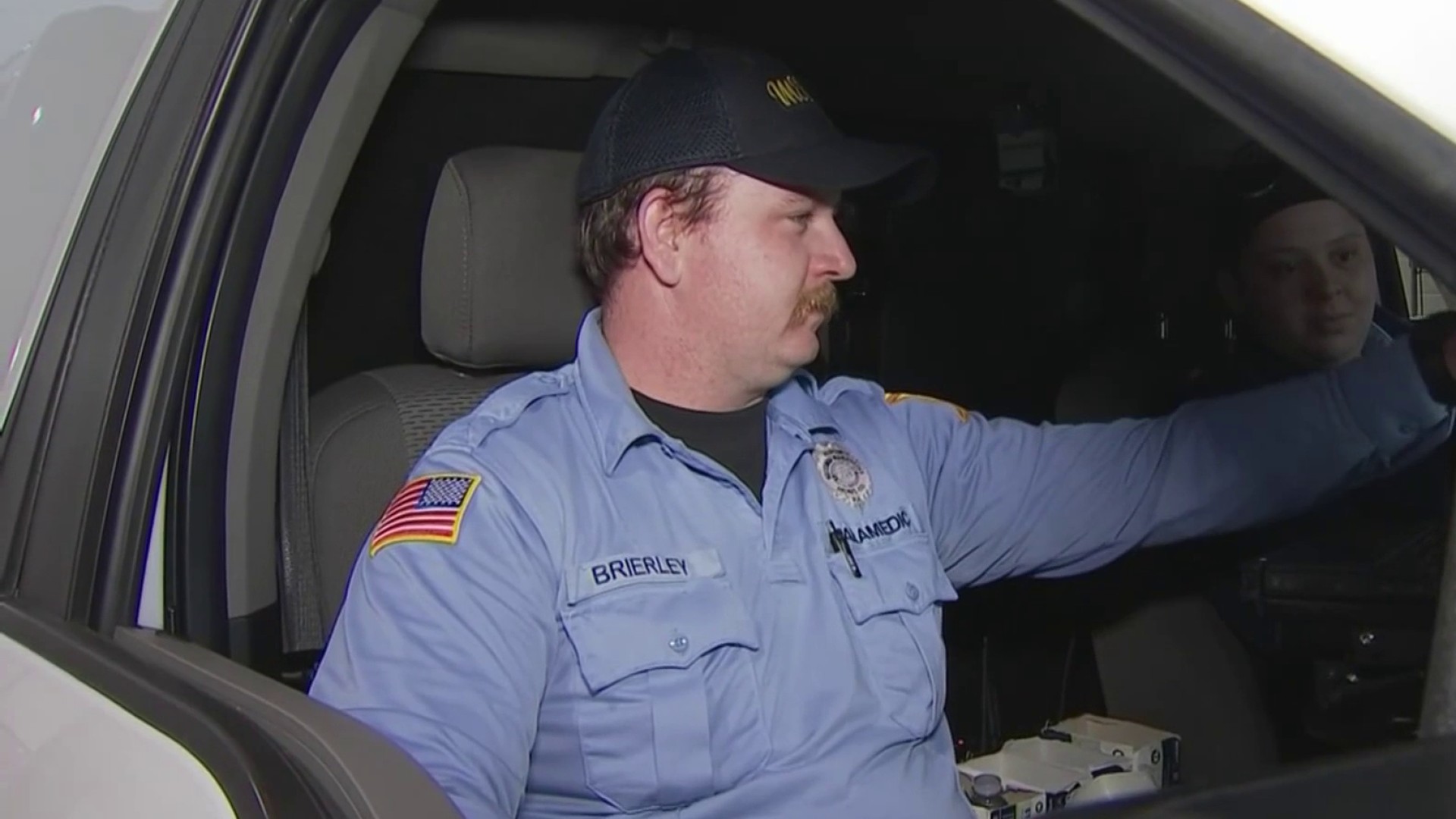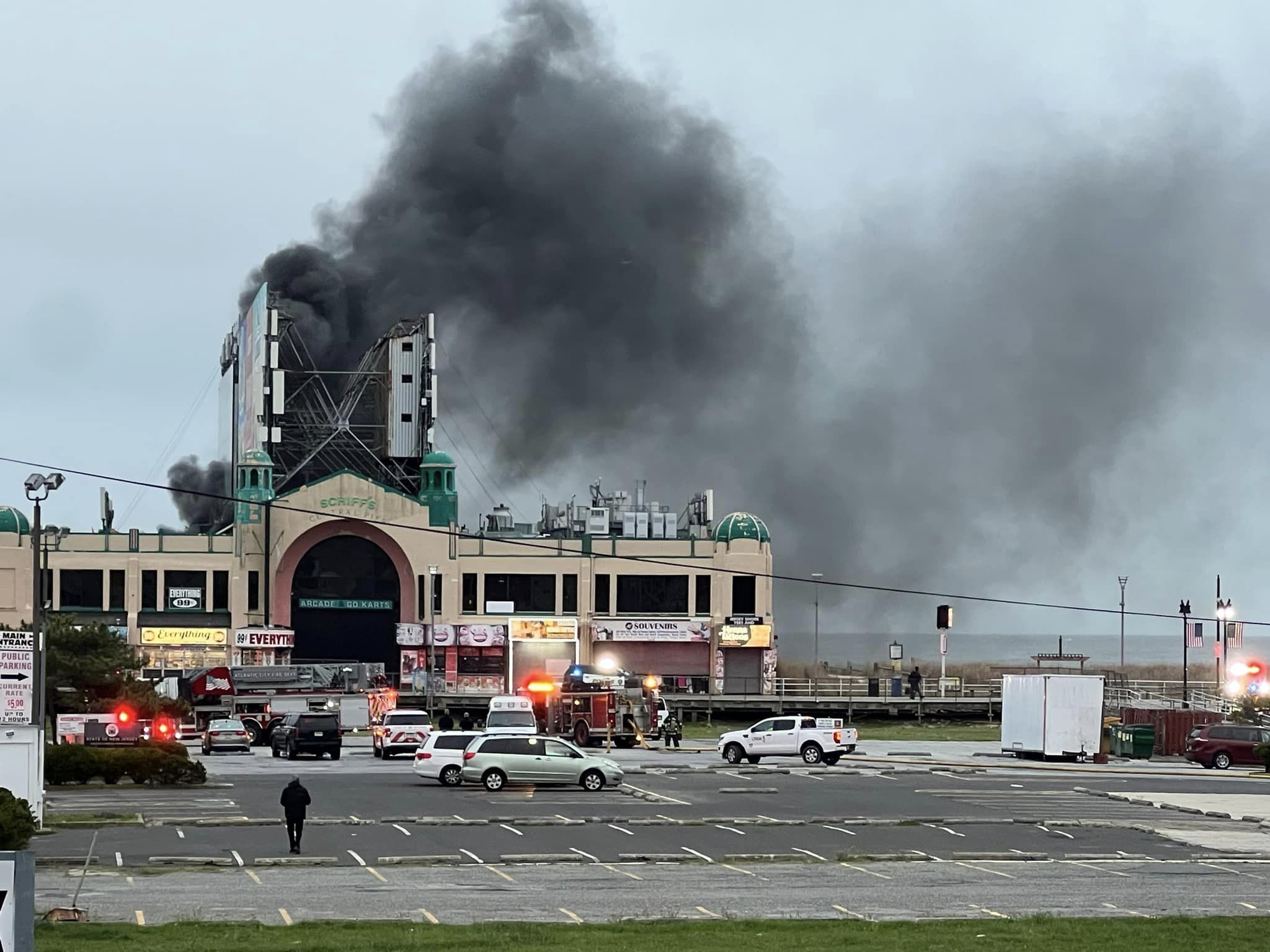Editor's Note: 10 Questions is a weekend feature on NBC10.com. If you know someone who we should profile, please email us.
Steve Patrick Ercolani’s documentary called “Pyne Poynt” focuses on a little league baseball team during a period of transition in Camden’s underserved population. With the help of videographer Gabe Dinsmoor – whose work has been featured in the National Geographic Travel guide and the LAtimes.com – “Pyne Poynt” will follow the Reyes family through one year and two seasons of baseball. With the help of Kickstarter.com, 225 supports and a pledged goal of $15,000, Steve’s passion for telling the story of Camden will finally be told.
What are some personal challenges and risks of being a journalist?
North Camden is a village. The whole of it is maybe ten blocks by six blocks, and nearly every block has a crew working at least one corner, or “spot.” We we’re lucky enough to have a respected member of the community who used to deal drugs himself before heading to prison for the better part of the decade, who is friendly with most of the corner boys, he took us around block by block and introduced us to the guys running the corners, so that when we are filming, we don’t tend to see any trouble. It’s easier to get access and gain trust this way because, precisely because North Camden is so small, everyone knows you, which is both a blessing and a curse because well, everyone knows you, and naturally not everyone is going to like what we are trying to accomplish.
Another challenge is that you have to go in with the understanding that there’s a lot of history there, racial tensions and exploitation, and I think that it’s incumbent upon us as journalists to steer clear of coming off as the voyeur, the slum tourist, the parachute journalist dropping in for the byline and leaving. These communities see that all the time. We want to stay away from telling the same sob story that every journalist somehow winds up telling when they talk about Camden, or similarly impoverished areas, and to get at what is really going on.
Why did you choose Camden, NJ as a place to film/document?
I was doing a piece for Al Jazeera on the Metro force. I met Brian Morton and I thought his story was a very representative story, that it communicated the ills of a lot of American cities suffering through post-industrialization. Chris Hedges said it best when he wrote that Camden is the poster child of post industrialization, and is an example of what a lot of cities can become as we continue to live through this recession and slash benefits. The social contract we have with impoverished communities in this country is changing, and it’s not for the better.
Local
Breaking news and the stories that matter to your neighborhood.
How is making this documentary a personal endeavor for you?
I grew up in the wealthy suburbs of Camden, in Haddonfield. And while I by no means came from the sort of money that most do in Haddonfield, I didn’t grow up on food stamps amid the constant threat of violence either. Camden is maybe five miles down Haddon Avenue from Haddonfield. Its amazing how much the topography shifts in maybe ten minutes. I was always curious about this. Its been something I’ve wanted to explore since I was growing up, and this is the first time in my career I’ve had the chance.
Describe your experiences traveling globally and working with news organizations.
NPR was interesting, because when I called the Northeastern bureau chief, she told me that she really felt that the story, which was really a smaller rendering of the documentary, that it wasn't a national story, but that she’d be happy to put me in touch with the local bureau. I’ve learned over time though that that’s really just editor speak for “convince me it’s a national story.” So I did, and the piece I cut went to All Things Considered and generated a lot of buzz for us. I did some freelance work for Al Jazeera during my time in Central America and gained a lot of insight into how a larger media organization functions. While it was wonderful writing for them it also made me understand that a project like this was something I had to do on my own terms, which is why I turned to Kickstarter for funding, and to a good friend of mine, cinematographer and co-director Gabe Dinsmoor. I wanted to do this my way and that is really the only way to accomplish that, with your own money and people you trust.
What inspired you to be a journalist?
I think that my mother would tell you I was a born tinkerer. I always liked messing about with anything I could get my hands on, not to build, as a future inventor might, but to observe, to find a way to tell a story with it. I think my earliest memory of storytelling is in my grandmother’s attic. She was Parisian, and she had all of these old trunks of chiffon, old shoes, jewelry. After dinner my sister and I would clear the table and head up to the attic and dig around in the trunks and make costumes, and then we’d write a script, and before dessert the lot of them would come upstairs and watch us perform. Strange as it may be, I think it was that.
Explain how observing Camden from the perspective of a resident of Haddonfield – a town with more affluence – changed you as a young man.
In high school it was the place that everyone went to buy drugs and alcohol. Sometimes people would come back with horror stories, as if it was some far off land that they’d gone exploring, tales of close calls about how they’d almost been mugged, or some such thing. That’s how people saw the city, understood the city. A third world you went to acquire vices. I always had the feeling something was missing in that narrative, and wanted to fill it. That’s partly what this documentary is.
Do you have any writers or storytellers that inspire you when you are writing a journal?
Joan Didion for me is the end all and be all. Sometimes I get very happy with something I’ve written. When that happens I normally go read some Didion, and then I remember what great writing really looks like.
If you could pursue any career besides journalism, what would it be?
I genuinely can’t imagine doing anything else. If I were smarter with numbers, I’d probably be a doctor.
What do you envision journalism to be like within the next few years?
The model is changing, obviously, and I have a very serious fear about a lot of it. Fear of “native advertising,” mainly, which is essentially when companies pay to have stories about their industry plugged into a magazine. Sometimes magazines are less than forthcoming about this relationship, and that is worrisome to me. Aside from this concern though, I think that as tablets continue to drop in price and become more accessible, I think that will open up a lot of avenues as far as advertising is concerned. Right now some very smart people concerned with the business side of journalism are talking a lot about falling advertising rates as more print readers move completely to digital. Right now CPM’s are quite high for advertisers in some places online, but as more move to digital, rates will inevitably fall, and how to fill that gap and still pay journalists is a question that needs answering.
Did you always have an interest in traveling globally?
Yes. The first time I traveled abroad I was fifteen. I was having a lot of trouble at school, I was getting into a lot of fights and not doing very well academically, and although I consider myself an atheist, I played in the church bell choir because it made my mother happy. We practiced on Wednesday nights, and as I was leaving the church I saw a sign on the wall that was asking for volunteers to help build homes and assist doctors in Guatemala. When I got there I found that I had a facility with language, spent the following summer in Spain studying Spanish and went back three more times to serve as a translator. That was all during high school. Since then I’ve lived and worked in Beijing, London, and Costa Rica.



